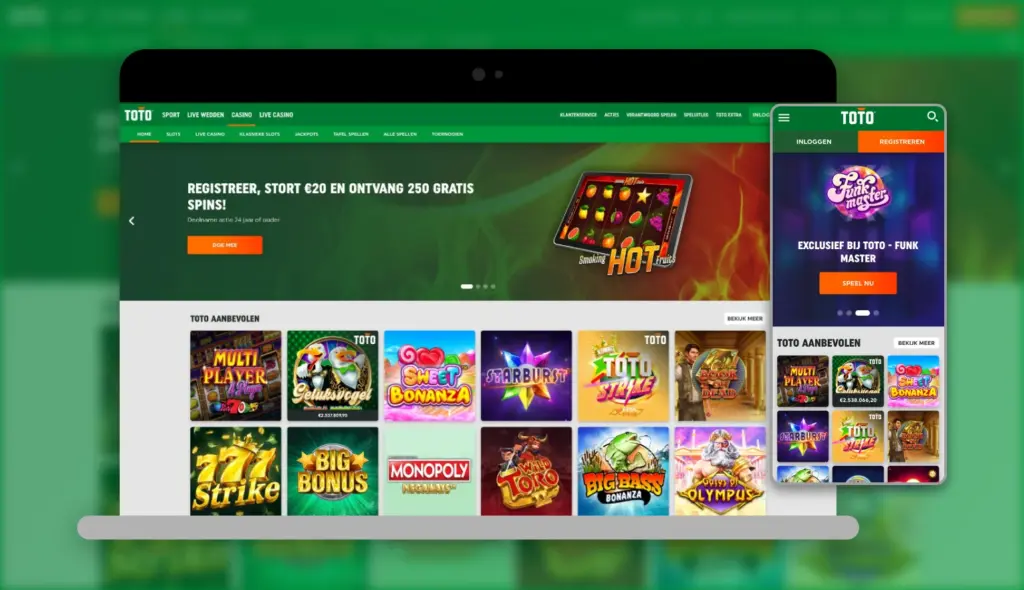Introduction:
In recent years, Singapore has witnessed a significant rise in online gaming and digital entertainment. While gaming culture continues to thrive, the government maintains strict control over any form of online betting or gambling. This careful balance between innovation and regulation makes Singapore one of the most advanced yet tightly governed gaming markets in the world.
This article explores how Singapore regulates online gaming and betting platforms UUS TOTO, examining its legal framework, the role of key authorities, the impact of technology, and the country’s stance on responsible gaming. Whether you’re a curious gamer, an investor, or an observer of global digital policy, understanding Singapore’s approach provides valuable insights into how a modern nation manages online gaming responsibly.
The Evolution of Gaming and Betting in Singapore
Early Years of Gambling Regulation
Gambling has a long history in Singapore, tracing back to the colonial era. Over the years, various forms of gambling such as lotteries, sports betting, and casino gaming have been introduced and subsequently regulated. However, as online technology advanced, the rise of internet-based platforms created new challenges for lawmakers.
Traditional gambling laws were no longer sufficient to address the surge in online casinos and offshore betting sites targeting Singaporean users. To combat this, Singapore strengthened its legal framework with comprehensive legislation and digital monitoring.
The Rise of Online Gaming
The digital revolution transformed entertainment habits. Video games, esports, and mobile apps became integral parts of Singaporean life. However, alongside recreational gaming, online gambling websites also began to appear. The government realized the need to differentiate between skill-based gaming and chance-based gambling, ensuring that the latter remained tightly controlled to protect citizens from addiction and fraud.
Key Legislation Governing Online Betting
Singapore’s regulation of online betting is rooted in several important laws. These laws define what constitutes gambling, set boundaries for legal operations, and establish penalties for violations.
Remote Gambling Act (RGA) of 2014
The Remote Gambling Act (RGA) is the cornerstone of Singapore’s online gambling regulation. Introduced in 2014, the RGA prohibits all forms of remote gambling activities unless explicitly exempted by the government. This includes any form of gambling conducted via the internet, mobile devices, or any digital communication channel.
The act’s primary goals are to:
- Protect citizens, especially minors, from gambling-related harm.
- Prevent criminal activities like money laundering and illegal betting.
- Maintain social order and reduce the negative impact of gambling.
The Gambling Control Act (GCA) of 2022
In 2022, Singapore consolidated various gambling-related laws into the Gambling Control Act (GCA). This modernized the regulatory framework and introduced the Gambling Regulatory Authority (GRA) as the central body overseeing all forms of gambling, including online and physical operations.
The GCA distinguishes between games of chance, games of skill, and hybrid games, ensuring that new forms of entertainment—like loot boxes and online betting apps—are properly categorized and monitored.
The Role of the Gambling Regulatory Authority (GRA)
The Gambling Regulatory Authority (GRA) was established to unify Singapore’s gambling UUS TOTO oversight. Operating under the Ministry of Home Affairs, the GRA manages licensing, compliance, and enforcement across all sectors of the gambling industry.
Main Responsibilities:
- Licensing: The GRA issues licenses for approved gambling operators, ensuring they meet strict standards of fairness, transparency, and security.
- Monitoring and Enforcement: The authority monitors online platforms to detect illegal betting activities and ensure compliance with regulations.
- Public Awareness: The GRA collaborates with community organizations to educate the public about responsible gaming practices and the risks of unlicensed betting sites.
By consolidating oversight into one body, Singapore improved efficiency and consistency in regulating both physical and digital gambling spaces.
Legal vs. Illegal Platforms
Licensed Operators
In Singapore, only operators with government-issued licenses are allowed to offer betting services. Examples include:
- Singapore Pools: The only legal online betting operator for lotteries and sports betting.
- Resorts World Sentosa and Marina Bay Sands: Licensed physical casinos that operate under stringent rules.
These licensed entities are subject to regular audits, responsible gaming obligations, and transparent reporting standards.
Unlicensed and Offshore Platforms
Many offshore betting platforms attempt to attract Singaporean players by offering online casino games, sports betting, or lotteries. However, under the Remote Gambling Act, accessing or promoting these sites is illegal. The government actively blocks such websites, restricts payment transactions, and even penalizes individuals found participating in illegal gambling.
This strict enforcement ensures that the local market remains safe, minimizing the risks of scams, addiction, and financial crimes.
Technology and Enforcement
Singapore uses advanced technology to maintain control over its digital gambling landscape. With one of the highest internet penetration rates in Asia, the government employs multiple strategies to monitor and regulate online activities.
Website Blocking
The Infocomm Media Development Authority (IMDA) collaborates with the GRA to block access to unlicensed gambling websites. Thousands of such sites are regularly taken down to prevent illegal betting.
Payment Restrictions
Financial institutions in Singapore are prohibited from processing payments to or from unlicensed gambling platforms. This effectively cuts off funding channels and discourages users from engaging with illegal operators.
Data Analytics and AI Monitoring
The GRA uses data analytics and artificial intelligence (AI) to detect suspicious betting patterns and fraudulent activities. These technologies help authorities identify illegal networks faster and enforce the law efficiently.
Responsible Gaming Initiatives
Singapore UUS TOTO prioritizes responsible gaming as a core part of its gambling policy. The government, alongside organizations like the National Council on Problem Gambling (NCPG), implements initiatives to help individuals manage their gambling habits responsibly.
Self-Exclusion Programs
Players can voluntarily exclude themselves from gambling activities through national exclusion schemes. These programs cover both land-based casinos and online platforms like Singapore Pools.
Public Awareness Campaigns
Educational campaigns across TV, social media, and schools emphasize the risks of problem gambling and promote mental health awareness. The NCPG’s slogan, “Know the Line,” reminds citizens to distinguish between entertainment and addiction.
Helplines and Support
Singapore offers confidential counseling services for individuals struggling with gambling issues. The National Problem Gambling Helpline and online chat support connect affected individuals to professional counselors.
Impact on the Economy and Society
Economic Contributions
While the government allows limited gambling activities, they are closely monitored for economic benefit. Licensed operators like Singapore Pools contribute to public funds, charities, and community development through their earnings.
Tourism also benefits from integrated resorts, which attract visitors from around the world. However, revenue generation is never prioritized over social responsibility—a key principle in Singapore’s policy framework.
Social Considerations
Singapore’s cautious stance stems from the recognition that gambling can lead to addiction, family problems, and financial distress. Therefore, the state focuses on balancing entertainment opportunities with strong social safeguards.
The Future of Online Gaming Regulation in Singapore
Adapting to New Technologies
As technology evolves, so do the challenges of regulation. New trends like cryptocurrency gambling, VR casinos, and blockchain gaming are emerging globally. Singapore continues to study these technologies carefully before permitting or restricting them.
Focus on Digital Literacy
The government aims to equip citizens—especially the youth—with digital literacy skills to recognize risks online. This includes identifying fake sites, understanding online fraud, and practicing safe digital behavior.
Potential for Regulated Innovation
While the current stance on online gambling remains firm, Singapore is exploring ways to support innovation in esports, gaming startups, and interactive entertainment. These sectors offer economic opportunities without the risks associated with gambling.
International Comparisons
Singapore’s approach is often compared with other countries in Asia and beyond.
- Malaysia and Indonesia: Both maintain strict prohibitions similar to Singapore but lack centralized regulatory bodies.
- Philippines: Operates a licensing system for offshore online casinos through PAGCOR, which contrasts with Singapore’s restrictive model.
- United Kingdom: Allows widespread online gambling but enforces strong consumer protection laws.
Singapore’s model stands out for its zero-tolerance approach to unlicensed gambling and proactive regulation through technology and education.
Conclusion:
Singapore’s regulation of online gaming and betting platforms demonstrates how a nation can embrace technological progress while safeguarding public welfare. Through comprehensive laws, advanced monitoring systems, and robust responsible gaming programs, the country maintains a clean, safe, and socially responsible gaming environment UUS TOTO.
While some may view the restrictions as strict, they serve an important purpose—protecting individuals, families, and the economy from the risks of gambling addiction and illegal activities. At the same time, Singapore continues to promote digital entertainment and esports, proving that innovation and responsibility can coexist.
As the digital era continues to evolve, Singapore’s framework will likely become a model for other nations seeking to regulate online gaming effectively while preserving societal well-being.

